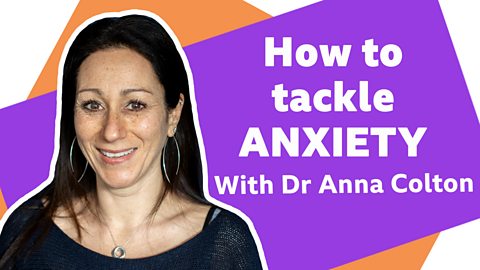The teenage years are frequently combative and difficult for parents to manage, especially around the ages of 14-16 as they push for independence.
A little understanding can go a long way, which is why we've asked psychologist Anjula Mutanda to explain what's going on in a teenager's brain. What makes them push the boundaries or rebel against their parents and how do you as a parent take stock and work through it with them?
Bez and his son Arlo add their memories of Arlo's teenage days - with a revelation for Bez.
The science - why they're pushing boundaries
- As teens continue to develop, the emotional area of the brain - the amygdala - develops sooner than the part of the brain needed for self control and decision making - the prefrontal cortex.
- The prefrontal cortex actually loses 'grey matter' in adolescence. Although this sounds worrying, it can be thought of as pruning a plant to promote better growth.
- The difference in development between the amygdala and the prefrontal cortex can lead to an increased desire for reward seeking which is often stimulated by interactions with their peers.
- As a result it can be easier for emotionally driven or risk-taking behaviours to overtake rational thinking.


This time can be gruelling so try not to take it personally, but instead pay attention to your child's specific circumstances and be prepared to offer understanding, flexibility and patience.
Anjula's advice:
Peak teen: Are the teen years 14-16 the hardest part?
Many parents say that the toughest teen years are around 14 to 16. This is when a child can appear to be rebelling against you and may seem actively hostile. These years see them test boundaries, small disagreements can create tension, and you may find your teen is feeling powerful insecurities, which they can take out on you. Try to resist the urge to snap back at them.

What if they're having emotional outbursts?
The pressure of their school life, friendship groups, romantic experiences and changes in their own physique can all play a major part in upsetting your teen.
- Secondary school may feel unbearable for them - so be understanding and try to empathise with them if they are struggling with school.
- Sometimes it can feel 'too close to home' for them to share everything with you as a parent - however good your relationship is. Because of this, communication with your teen may become difficult and strained, it's no failure on your part if they benefit from speaking to another trusted adult, such as an aunt, uncle, older sibling or teacher.
- Spreading the load is also helpful for you as a parent - try to not feel alone in dealing with this - this article from Parents' Toolkit is about creating your own support network.

If your teen is pushing the boundaries and breaking more rules - don't forget this is normal, so there's no need to take offence and over personalise.
- Setting clear boundaries and consequences help. If you have a partner/co-carer - make sure you agree what the boundaries are so you can be consistent in your rules. 'Teens, are very concerned with fairness, they will often spot inconsistency quickly and may become upset.
- Be careful not to preach at them, make sure you engage in calm communication - this will de-escalate any disagreements.
- Sometimes talking to each other over text can help you both articulate feelings in a calm way and spell out exactly what is going on. Think carefully about the words you choose and how they might be read, to avoid misinterpretation.
Anjula says:“At times you may feel at a total loss of how to help your teen during this very turbulent time. But be reassured that this is all normal and part of your teenager's development. So hang on in there, both of you.”

Scientific advice by Dr Emma Parish, paediatric and adolescent consultant at Evelina London Children’s Hospital.
For more on the teenage brain, this episode of the BBC World Service podcast Deeply Human meets teens and a brain scientist to find out why the rollercoaster highs and lows of teenage life might be good for us.

If your child needs further support
If your child is in need of in-the-moment support they can contact Childline, where they can speak to a counsellor. Their lines are open 24 hours a day, 7 days a week.
Mental health charity Young Minds have this quick 'help finder' to guide young people and parents to information and support.
There are more links to helpful organisations on BBC Action Line.
There is more advice and information for parents of teens on the Parents' Toolkit here.
Bitesize Support offer advice to teens on staying safe as they navigate adolescence.

Parents' Toolkit
Fun activities, real-life stories, wellbeing support and loads of helpful advice - we're here for you and your child.

Michael Mosley: Five tips for helping your kids sleep well
Dr Michael Mosley offers advice on improving health and concentration through better sleep habits. Here are his tips for parents to help their kids.

How to help your child deal with obsessive compulsive behaviours
Expert advice on helping to spot compulsive behaviours and support your child through their issues and anxieties.

How to manage your child’s online world without clashing
Children and teens spend lots of time online for school and leisure, which can be a worry for parents. Here's some advice on managing your child’s screen time.

How to talk to your teenager about the invasion of Ukraine
Tips from a clinical psychologist on how you can talk to your teen about war and help them to manage any anxieties.

How to tackle anxiety with Dr Anna
Calming techniques to help parents and children manage their anxiety.
